Blog

Marvis Toothpaste Alternative
December 15, 2025
Just because it looks luxurious doesn’t mean it’s doing anything groundbreaking for your oral health. We’re going to help you pick the perfect Marvis toothpaste alternative, no matter what you’re...
Read More >

Crest vs Colgate Toothpaste Comparison
November 1, 2025
Crest vs Colgate toothpaste - a showdown between the two biggest drugstore oral care brands in the world. As you’ll learn in this Colgate vs Crest toothpaste comparison, though, they’re...
Read More >

Tooth Powder vs Toothpaste: Which is Better?
November 15, 2025
Gone are the days when toothpaste was the only way to clean your teeth. Tooth powder has started to pick up in popularity. But in looking at tooth powder vs...
Read More >

Is Mouthwash Good For You?
October 1, 2025
It’s easy to think that brushing and flossing every day is enough to keep your oral health in check. But that’s not always the case. A mouthwash could be the...
Read More >

Peridex Alternative
October 15, 2025
Peridex is a chlorhexidine rinse prescribed for serious gum irritation - but the staining, dry mouth, or that stubborn aftertaste it leaves behind can leave you desperate for a better...
Read More >

Scope vs Listerine Mouthwash
September 1, 2025
We get asked all the time how Scope vs Listerine vs LIVFRESH stack up. The short answer: LIVFRESH is totally different from the other two drugstore mouthwash brands. Scope is...
Read More >

ACT vs Listerine
September 15, 2025
You’re not alone if you’re curious about the difference between ACT vs Listerine mouthwash. These are two popular drugstore brands, often placed right next to each other on shelves. They’re...
Read More >

Best Mouthwash for Plaque
August 1, 2025
While brushing and flossing should always be the foundation of your oral care regimen, you need to use the best mouthwash for plaque removal. A plaque removal mouthwash can reach...
Read More >

Best Mouthwash for Gum Disease
August 15, 2025
You need the BEST mouthwash for gum disease if you’re dealing with bleeding when you brush, tender gums, or a constant fuzzy film that seems to come back no matter...
Read More >

Best Toothpaste for Plaque Removal
July 1, 2025
Toothpaste is the foundation of your oral health hygiene, and you shouldn’t settle for anything less than the best toothpaste for plaque removal. Plaque is a bacterial biofilm that forms...
Read More >

Best Toothpaste for Gum Disease
July 15, 2025
As much as 50% of the world’s population will be impacted by gum disease in some way or another at some point, but the best toothpaste for gum disease helps...
Read More >

Best Toothpaste for Receding Gums
June 1, 2025
Whether you’re noticing more sensitivity or can actually see your gums receding further and further, you can slow the progression with the best toothpaste for receding gums. We’ve put together...
Read More >

Best Toothpaste for Gingivitis
June 15, 2025
Red gums, bleeding when you floss, and a swollen edge along your smile are just a few of the hallmark signs of gingivitis, the first stage of gum disease. The...
Read More >

Baking Soda vs Toothpaste: Is Baking Soda Better Than Toothpaste?
May 1, 2025
Baking soda vs toothpaste - a comparison we see made all the time. You might assume that only hippies brush their teeth with baking soda instead of traditional toothpaste, but...
Read More >

Gel vs Paste Toothpaste
May 15, 2025
A lot of our customers ask us about the difference between our toothpaste gel vs paste. Others don’t even realize there is a debate about which is better between gel...
Read More >

Foaming vs Non-Foaming Toothpaste: Which LIVFRESH Formula is Better?
April 1, 2025
There are two great options for you at LIVFRESH: our foaming vs non-foaming toothpaste formulas. Either way, you’re getting the power of activated edathamil to remove plaque 250% better, improve...
Read More >

Boka vs Cocofloss Toothpaste: Is LIVFRESH Better?
April 15, 2025
Not all toothpastes are created equal. We’ve noticed more and more people are no longer willing to settle for whatever’s cheapest or easiest to grab at their local drugstore. These...
Read More >

TheraBreath Alternative: What’s the Best Alternative to TheraBreath Mouthwash?
March 1, 2025
Your search for a TheraBreath alternative ends here at LIVFRESH. This brand makes a variety of mouthwash formulations. While they freshen up your breath, plaque still comes back fast -...
Read More >

Listerine vs Crest Mouthwash: Is Crest or Listerine Better?
March 15, 2025
Mouthwash is just as important as your toothpaste, floss, and even the type of toothbrush you use. But with so many options at your disposal, it’s hard to know which...
Read More >

Tom’s of Maine Toothpaste Alternative
March 1, 2025
You don’t have to settle for basic drugstore toothpastes anymore. There are gentler, more natural alternatives these days - like Tom’s of Maine toothpaste. This brand has a really popular...
Read More >

Alternative to Fluoride Toothpaste
February 15, 2025
Fluoride has been the go-to ingredient in toothpaste for decades, but the tide is turning. People are looking for a better fluoride toothpaste alternative. Maybe because it’s too harsh on...
Read More >

Hydroxyapatite Toothpaste vs Nano-Hydroxyapatite Toothpaste: What’s the Difference?
January 1, 2025
Toothpaste does a lot more than freshen your breath. It’s supposed to be your first line of defense against plaque, acid wear, and sensitivity. But with more people avoiding fluoride,...
Read More >

Nobs vs Bite Toothpaste: How Does LIVFRESH Compare?
January 15, 2025
Gone are the days when traditional toothpaste was your only option. Brands like Nobs and Bite have introduced something radically different: toothpaste tablets. This approach is compact, travel-friendly, and made...
Read More >

TheraBreath vs Listerine: How Does LIVFRESH Mouthwash Compare?
December 1, 2024
No oral care regimen is complete without mouthwash. A quick rinse post-brushing can reach areas that toothbrush bristles can’t, fighting plaque, improving gum health, and keeping your breath fresh for...
Read More >

Listerine Alternative
December 15, 2024
Brushing and flossing are obviously essential, but mouthwash completes your oral-care routine. It gives you that clean, refreshed finish to help fight plaque, bad breath, and gum irritation. And while...
Read More >
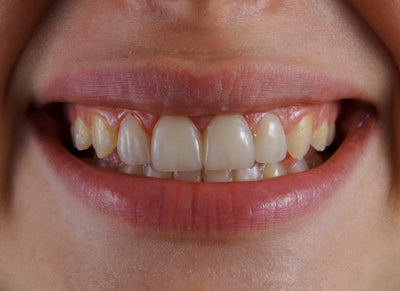
Niacinamide vs Fluoride Toothpaste
December 1, 2024
Fluoride has long been the go-to active ingredient in toothpaste, especially formulas focused on cavity prevention. It’s proven, and despite the concerns on its safety, it’s still the most popular...
Read More >
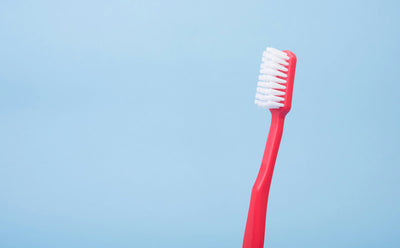
Fluoride vs Fluoride-Free Toothpaste
November 15, 2024
You’ve probably heard all the buzz around fluoride - more specifically, the concerns surrounding this common ingredient in toothpaste and other oral care products. It definitely has its place in...
Read More >
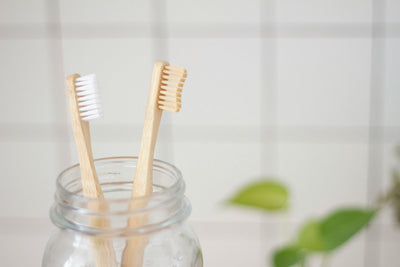
David’s Toothpaste Alternative
November 1, 2024
Fewer and fewer people are settling for drugstore toothpaste formulas. You have so many options at your disposal these days, including David’s Toothpaste - a popular fluoride-free formula. But once...
Read More >
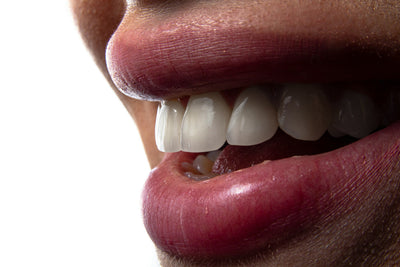
Boka Toothpaste Alternative
October 15, 2024
Your toothpaste shouldn’t be an afterthought. It’s the entire foundation of your oral care habits. That’s why if you’ve been using Boka toothpaste, it might be time to rethink your...
Read More >
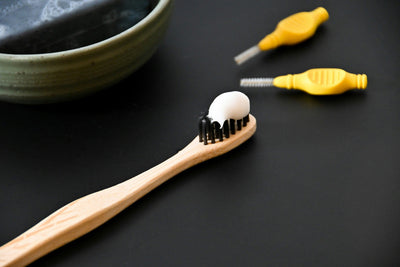
Boka vs Fygg Toothpaste: How Do They Compare to LIVFRESH?
October 1, 2024
The days of choosing between basic drugstore brand toothpastes are long gone. You have more options than ever before, and today’s toothpastes do more than leave you with clean teeth...
Read More >
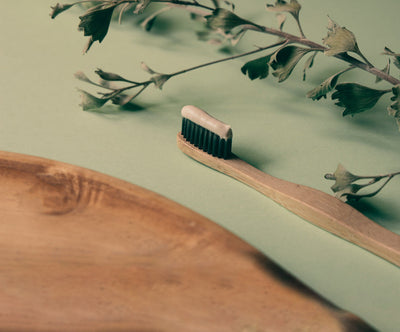
Hello vs Native Toothpaste
September 15, 2024
The right toothpaste does way more than clean your teeth and freshen your breath. It can actively improve your oral hygiene by eliminating plaque and preventing gum recession - and...
Read More >

Hydroxyapatite Toothpaste vs Fluoride Toothpaste
September 1, 2024
You’re not alone if you want to know more about what’s in your toothpaste. We’ve seen a massive uptick in people researching oral care ingredients for two main reasons: They...
Read More >

Wellnesse Toothpaste Alternative
August 15, 2024
Wellnesse makes personal care products crafted by conscious consumers, for conscious consumers. The brand’s toothpaste is among its most popular offerings, with over a million tubes sold and 20,000+ 5-star...
Read More >

What Causes Cavities? 8 Common Causes of Cavities
August 1, 2024
Even those who take great care of their teeth stress about cavities as a dentist appointment looms ahead. You dread the idea of getting a filling, not just because it...
Read More >

Parodontax vs Sensodyne vs LIVFRESH Toothpaste
July 15, 2024
It’s not merely the act of brushing that cleans your teeth. It’s the toothpaste you use that actually removes plaque, prevents tartar, and eases gum discomfort. The problem is, very...
Read More >

LIVFRESH vs TartarEnd
July 1, 2024
Some people don’t think twice about the toothpaste they use. Whatever they lock eyes with at CVS first, that’s what they go home with. Others, like you, realize the right...
Read More >

Tom’s vs Hello Toothpaste: How Do They Compare to LIVFRESH?
June 15, 2024
Fewer people are settling for drugstore toothpastes, as more and more specialty brands introduce sophisticated formulas that go beyond just freshening your breath. Here at LIVFRESH we’ve developed a patented...
Read More >
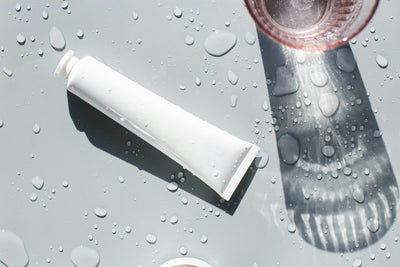
LIVFRESH vs Boka vs RiseWell Toothpaste
June 1, 2024
The right toothpaste does more than merely clean your teeth. It makes a lasting impact on your oral health overall, from plaque removal (and prevention) to gum support. Not to...
Read More >
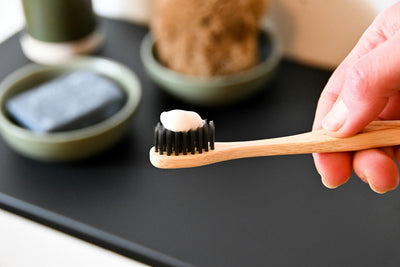
LIVFRESH vs Boka vs David's Toothpaste
May 15, 2024
Your toothpaste can make or break your oral health. The last thing you want is to cause more harm than good every time you brush your teeth, which is why...
Read More >
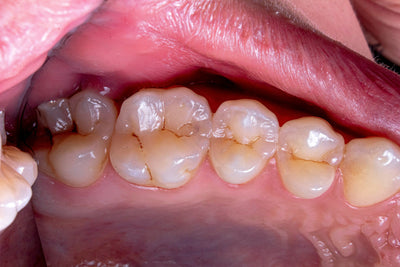
How to Stop Bleeding Gums
May 1, 2024
You often taste it before you see it: bleeding gums. Whether it’s from flossing or brushing, or in more severe cases, triggered by eating, it is a really common and...
Read More >
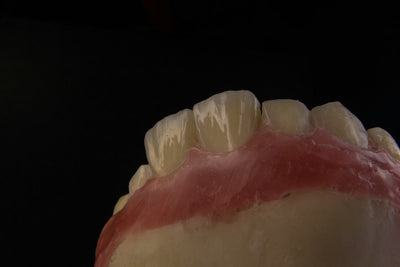
How to Prevent Gingivitis: Your Guide to Gingivitis Prevention
April 15, 2024
It’s been said that nearly half of adults in the US over 30 suffer from some form of gum disease, and gingivitis is the first stage. Symptoms include red gums,...
Read More >
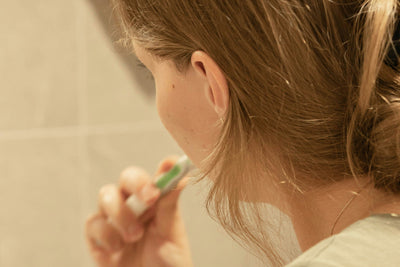
Plaque Removal at Home: How to Remove Plaque From Teeth at Home Naturally
April 1, 2024
Plaque is the root of all evil when it comes to oral health. This sticky biofilm made up of bacteria, food particles, and saliva eventually becomes tartar, and in turn,...
Read More >

Aquafresh Alternative: Is Aquafresh a Good Toothpaste?
March 15, 2024
Not all toothpaste is created equal. The product you brush your teeth with shouldn’t be an afterthought, as it can make or break your oral health. While you may have...
Read More >
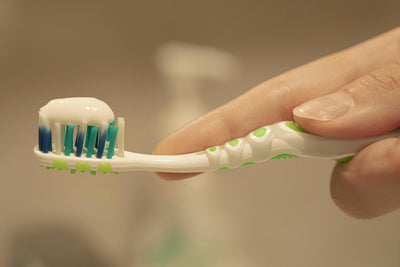
Parodontax Toothpaste Alternative
March 1, 2024
Once you realize the role toothpaste actually plays in your oral health, everything changes, and you’re no longer willing to settle for whatever is cheapest or most convenient. The right...
Read More >
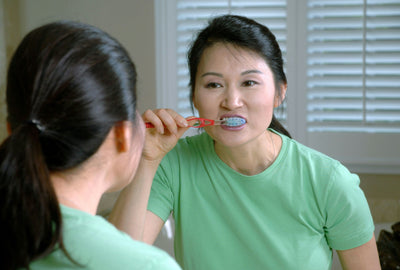
Sensodyne Alternative: What’s the Best Alternative to Sensodyne Toothpaste?
February 15, 2024
Gum and tooth sensitivity can take a toll on your day-to-day life, making something as simple as enjoying hot soup or drinking a glass of cold water painful. Sensodyne toothpaste...
Read More >

What Are Teeth Made Of? Understanding The Composition Of Teeth
February 1, 2024
Teeth are an essential part of the human body. They play a crucial role in our daily lives, from helping us to chew our food to providing us with a...
Read More >

Falling Asleep Without Brushing Your Teeth: Why Is It So Bad?
January 15, 2024
If you forget to brush your teeth at night every once in a while, you're not alone. But when failing to brush becomes a bad habit, you could be taking...
Read More >
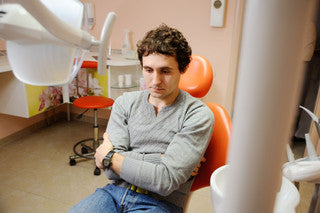
How Do Fad Diets & Fasting Impact Your Oral Health?
January 1, 2024
As the end of the year approaches, many people start thinking of ways to make positive changes to their health. This is the time of year when people are more...
Read More >


